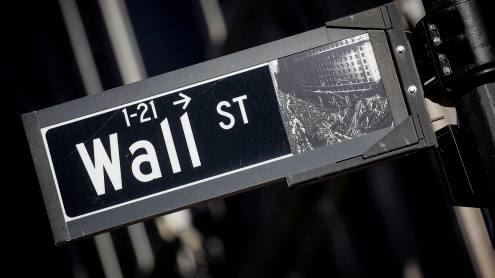The autumn of 2008 was momentous. And not only for the near-collapse of the entire banking system. It marked a shift in the global balance of financial power. Forced to take money from the public purse, banks lost an element of independence. For governments and regulators, the events of 2008 were a sign that bankers could no longer be trusted. They needed supervision - and plenty of it.
The degree of supervision has been under discussion ever since. In the US, the debate took a distinctly more radical turn in April when senator Blanche Lincoln released a bill formally entitled The Wall Street Transparency and Accountability Act of 2010.
Ms Lincoln's 1500-page bill goes further than any of the suggestions that have come out of Capitol Hill so far. If passed, it could have far-reaching implications for the $20,000bn commodity derivatives market - both for the banks that stand behind it and the clients that use derivatives to hedge their risks on a daily basis.
For most participants in the market, Ms Lincoln's bill came as something of a shock. As chairman of the Senate Agriculture Committee - and a long-time observer of the commodities market - Ms Lincoln was thought to have a greater understanding of swaps and derivatives than many of her fellow senators. So most observers expected a degree of moderation from her proposals around reform of the derivatives market.
"Everyone knew reform was on the agenda, but the Agriculture Committee has been watching the derivatives piece for a long time, so we thought they would put out a bipartisan bill, at least where commodities were concerned," said one senior banker.
This assumption was wrong. Not only is the bill rooted in Democratic politics, but it is full of curbs many believe would be hugely detrimental to the liquidity, effectiveness and efficiency of the commodities market.
The most contentious suggestion, commonly known as 'Section 106' or the 'push-out clause', proposes that banks should not be able to participate in the swaps market and have access to Federal Reserve assistance - in other words, they cannot have it both ways. Either they act like old-fashioned banks and benefit from the implicit state guarantee offered by the Fed, which allows them to access (and lend) funds more cheaply than they would otherwise, or they act like well-rounded 21st century financial institutions - and forego Federal Reserve insurance. In other words, Ms Lincoln's idea is that large banks indulging in swap trading should either stop doing so or separate this activity from the rest of their business.
Quarantining risk
Her justification for this proposal is simple: "By quarantining highly risky swaps trading from banking altogether, federally insured deposits will not be put at risk by toxic swaps transactions. Moreover, banks will be forced to behave like banks, focusing on extending credit in a manner that builds economic strength as opposed to fostering worldwide economic instability," she says.
The statement, made in a speech to the Senate last month, is decidedly partisan but it almost certainly appealed to large swathes of the general public, many of whom blame 'big banks' for the economic woes of today.
Lincoln suggests that five US banks - Bank of America Merrill Lynch, Citigroup, Goldman Sachs, JPMorgan and Wells Fargo - dominate what she describes as "the $600 trillion, severely under-capitalised and unregulated and opaque swaps market".
On the commodities front, the largest US players are Goldman Sachs, Morgan Stanley, Barclays Capital and JPMorgan, though every bank with international reach is a player in this space. For all these institutions, Section 106 of the Lincoln Bill is little short of a disaster in the making.
"There is huge confusion about the push-out clause. Will it mean that banks have to move their swaps business out of the bank completely or can they retain some elements of the business within the bank holding company? Each alternative would yield a very different result but either is pretty draconian," says Robin Maxwell, partner and head of UK law firm Linklaters' US financial regulation group.
Most industry participants believe, too, that the push-out clause could result in changes to the US banking industry that go far beyond politicians' original expectations.
"If the rules become too onerous, American banks will leave the marketplace, to the detriment of the US financial system. As law-makers try to change the way the system works, the law of unintended consequences will prevail," says John Donohue, chief compliance officer for brokerage and clearance business at SunGard.
Counterproductive effects
There are also concerns that forcing banks to separate out their swaps business will work to the detriment of the very people the US administration would most like to help.
"If banks were required to move the business into separate affiliates, they would have to provide capital to those entities, which generally would mean taking capital out of the banks and thus limiting their ability to extend credit. At a time when borrowers are already finding it hard to obtain credit, limiting financial institutions' ability to lend seems antithetical to the goals of comprehensive reform legislation," says Kenneth Bentsen, executive vice-president of public policy and advocacy at the Securities Industry and Financial Markets Association.
Participants in the commodities market also fear the Lincoln Bill will have unintended consequences, making it harder for producers and consumers to manage long- and short-term risk.
In this context, concerns centre on two proposals - the suggestion that every over-the-counter (OTC) derivatives contract is centrally cleared and the suggestion that OTC contracts move on-exchange.
The rationale behind these ideas is reasonably clear. Commodity traders have long been blamed for soaring prices, particularly in those commodities that most closely touch American consumers' hearts - oil and wheat. Curb the involvement of financial players in the commodities market and prices would be more stable, the populist argument goes.
Kevin Norrish, head of commodities research at Barclays Capital, disagrees. "I do not see any price distortion as a result of speculation. The sheer weight of economic analysis supports this view," he says.
Industry participants believe that, far from being a malign influence, commodity derivatives are broadly beneficial. "The commodities derivatives market is different from other markets because so many of the end-users are corporates, not financial institutions," says one top banker.
For such corporates, the central clearing proposal could be particularly onerous, if it involved posting collateral on every trade. According to one gas company director: "For many corporates, including large multi-national energy players, this requirement would make it almost impossible to use commodity derivatives. They could not afford the up-front payments."
Certain exemptions?
The Lincoln Bill does state that certain end-users will be exempt from these requirements, but no one is clear how wide-ranging these exemptions will be or how difficult it will be to access them.
The bill also suggests that a large number of derivatives are traded on an exchange and that pricing and other information is immediately disclosed, proposals that provoke wide-ranging concerns within the commodities arena.
"The requirement that virtually every swap be mandatorily cleared and the idea of forcing lots of swaps onto exchanges may work for customised swaps but not for bespoke commodities swaps," says Ms Maxwell.
"The point about commodities is that they are so varied. Trading plain vanilla oil or soya bean contracts on an exchange is fine, but many products are highly bespoke and extremely illiquid. It is more about one party saying to another: 'I have a need, can you fill it?' - so exchange trading is not always appropriate," says one swaps trader.
Disclosure of information has been widely criticised too. Another swaps trader says: "We are happy to disclose certain levels of information. In fact, we believe a central depository of data could be useful, but disclosing everything would be anti-competitive. Why would a client pay for bespoke information and advice if the result of that advice was immediately made plain for the world to see?"
Commodities players - and the wider banking community - are lobbying policy-makers energetically and will continue to do so as the Senate and the House of Representatives work together to try to create a unified bill to put before US president Barack Obama.
Momentum for change
No one dares to presuppose the outcome of this bill, but much is at stake. Financial reform has been at the forefront of the US legislative agenda ever since President Obama was elected, but it has become even more of an issue following the passing of his healthcare reform bill earlier this year. Now there are real worries that the complexity of the financial system will be overlooked as policy-makers seek to correct an industry that has been vilified in the past two years.
"The bill should most certainly not happen in its current format, but at the moment good governance is being submerged by bad politics," says Simon Denham, chief executive of the financial services firm London Capital Group.
There is still much to play for, not least because, even after a financial reform bill has been passed, the Commodity Futures Trading Commission (CFTC) and the Securities and Exchange Commission will have to turn the legislative framework into a set of practical and workable regulations. CFTC chairman Gary Gensler has stated his support for the Lincoln Bill and is thought to be keen to enforce even its most controversial elements.
European banks are watching developments closely, too. US bankers believe European regulators are taking a more measured approach to derivatives trading but there are fears the EU may follow Ms Lincoln's lead.
On both sides of the Atlantic, opponents of the Lincoln Bill range from bankers to advisers to corporates, all of whom fear the US commodities derivatives market will emerge smaller, costlier and less efficient from the zeal for reform.
"Laws passed in haste and laws based on populist concerns tend to be bad laws," says Mr Denham.







